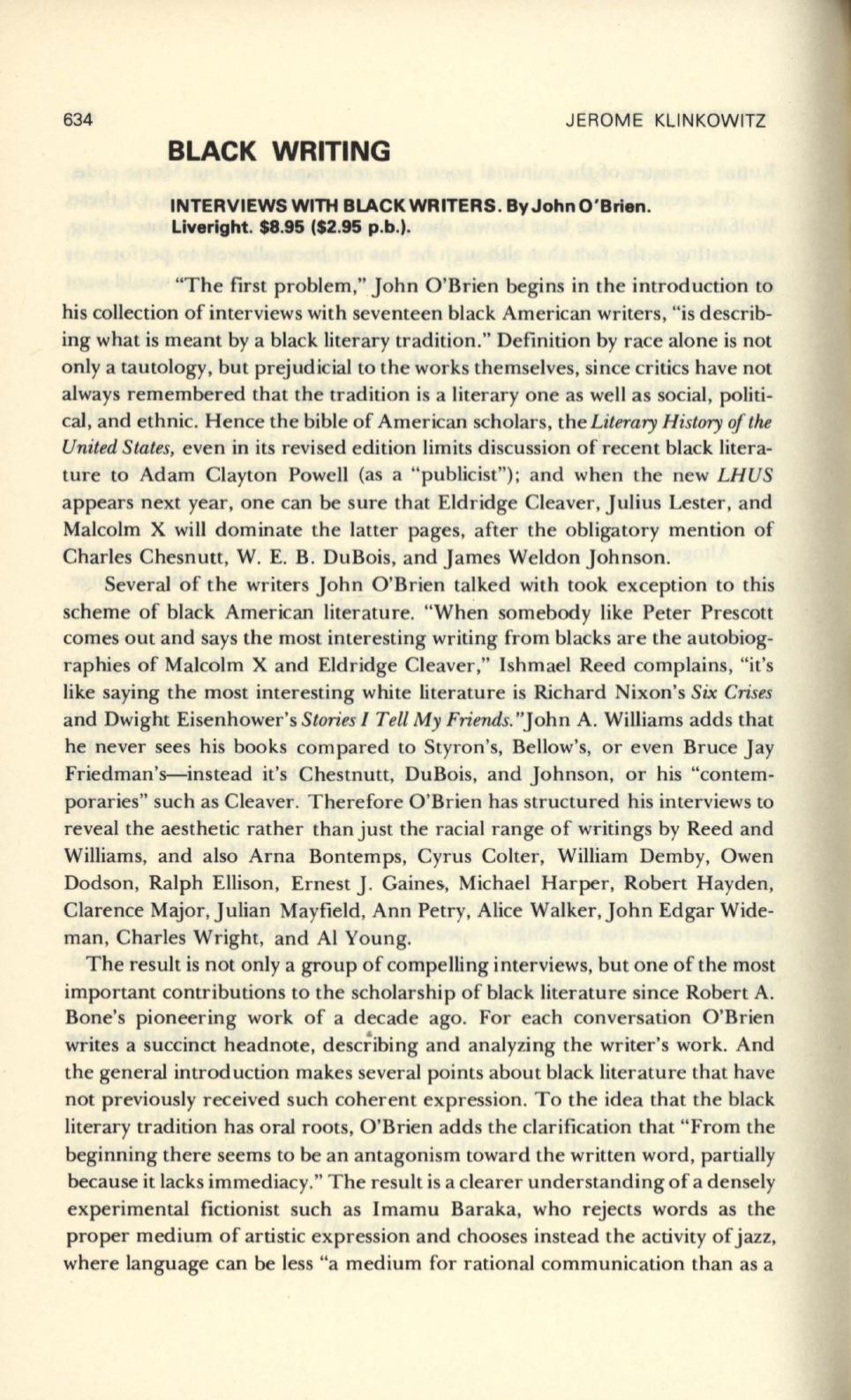
634
JEROME KLiNKOWITZ
BLACK WRITING
INTERVIEWS WITH BLACKWRITERS . ByJohnO'Brien.
Liveright. $8.95 ($2.95
p.b.,.
"The first problem," John O'Brien begins in the introduction to
his collection of interviews with seventeen black American writers, "is describ–
ing what is meant by a black literary tradition ." Definition by race alone is not
only a tautology, but prejudicial to the works themselves, since critics have not
always remembered that the tradition is a literary one as well as social, politi–
cal, and ethnic. Hence the bible of American scholars, the
Literary History
of
the
United States,
even in its revised edition limits discussion of recent black litera–
ture to Adam Clayton Powell (as a "publicist"); and when the new
LHUS
appears next year, one can
be
sure that Eldridge Cleaver, Julius Lester, and
Malcolm X will dominate the latter pages, after the obligatory mention of
Charles Chesnutt, W. E. B. DuBois, and James Weldon Johnson.
Several of the writers John O'Brien talked with took exception to this
scheme of black American literature. "When somebody like Peter Prescott
comes out and says the most interesting writing from blacks are the autobiog–
raphies of Malcolm X and Eldridge Cleaver," Ishmael Reed complains, "it's
like saying the most interesting white literature is Richard Nixon's
Six Crises
and Dwight Eisenhower's
Stories I Tell
My
Friends.
"John A. Williams adds that
he never sees his books compared to Styron's, Bellow's, or even Bruce Jay
Friedman's-instead it's Chestnutt, DuBois, and Johnson, or his "contem–
poraries" such as Cleaver. Therefore O 'Brien has structured his interviews to
reveal the aesthetic rather than just the racial range of writings by Reed and
Williams, and also Arna Bontemps, Cyrus Colter, William Demby, Owen
Dodson, Ralph Ellison, Ernest J . Gaines, Michael Harper, Robert Hayden,
Clarence Major, Julian Mayfield, Ann Petry, Alice Walker, John Edgar Wide–
man, Charles Wright, and Al Young.
The result is not only a group of compelling interviews, but one of the most
important contributions to the scholarship of black literature since Robert A.
Bone's pioneering work of a decade ago. For each conversation O'Brien
writes a succinct headnote, desc; ibing and analyzing the writer's work. And
the general introduction makes several points about black literature that have
not previously received such coherent expression. To the idea that the black
literary tradition has oral roots, O'Brien adds the clarification that "From the
beginning there seems to be an antagonism toward the written word, partially
because it lacks immediacy." The result is a clearer understanding of a densely
experimental fictionist such as Imamu Baraka, who rejects words as the
proper medium of artistic expression and chooses instead the activity ofjazz,
where language can be less "a medium for rational communication than as a


